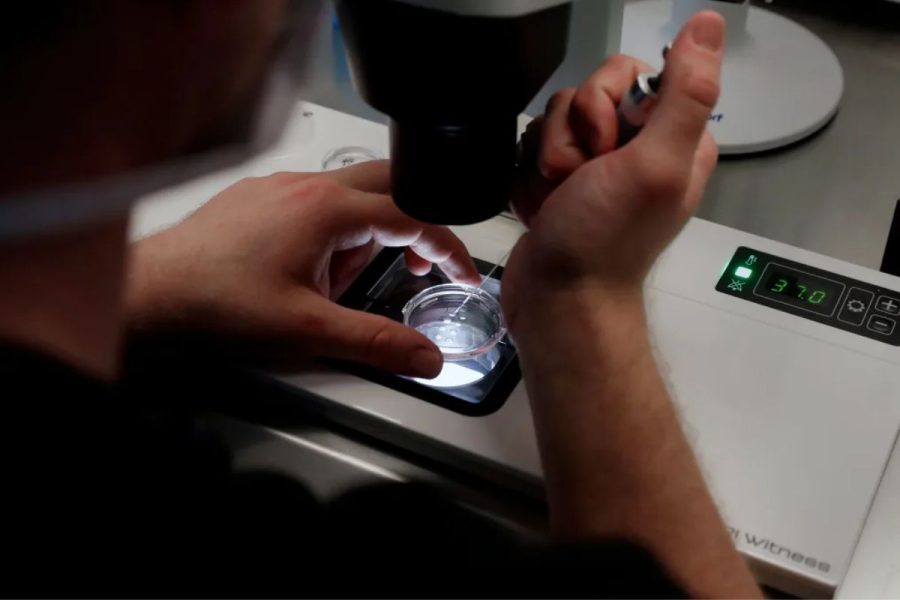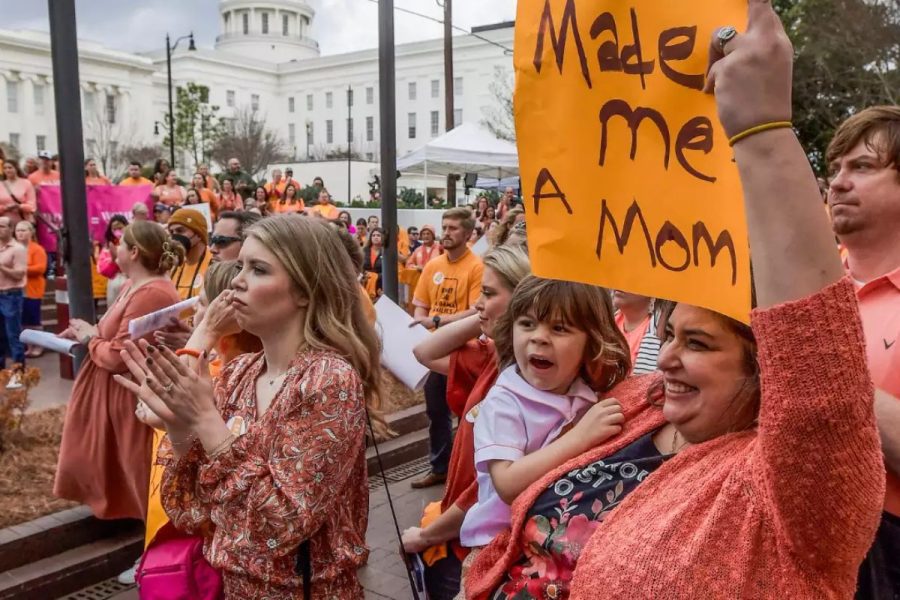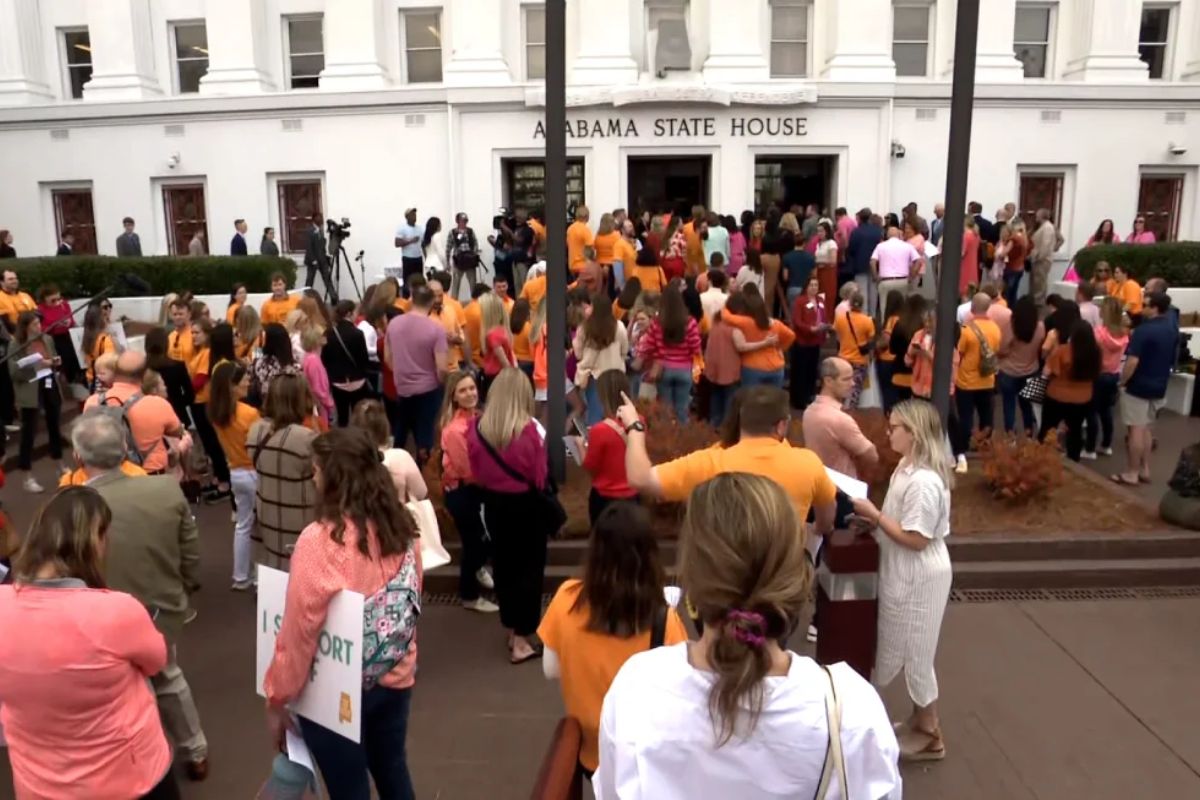Alabama Passes Bills Safeguarding: Alabama’s recent passage of bills aimed at safeguarding in vitro fertilization has sparked a wave of discussions surrounding the ethical and legal landscapes of assisted reproductive technologies.
The legislative efforts come at a crucial juncture amidst a national dialogue on reproductive rights and healthcare access. With implications reaching far beyond state borders, the bills signal a significant shift in how IVF treatments are regulated and protected within Alabama.
As stakeholders grapple with the complexities of these new laws, the broader implications for fertility clinics and prospective parents alike remain a focal point of ongoing debate.
Legislative Response to IVF Treatment Pause
In response to the temporary halt in in vitro fertilization treatments following the state Supreme Court ruling, the Alabama House and Senate swiftly passed bills aimed at addressing the legal uncertainties surrounding IVF procedures.
House Bill 237 (HB 237) and Senate Bill 159 (SB 159), sponsored by Rep. Terri Collins and Sen. Tim Melson, respectively, received strong bipartisan support. HB 237, approved by a 94-6 vote with 3 abstentions, and SB 159, which secured unanimous approval with a vote of 34-0, seek to provide civil and criminal immunity to individuals offering goods and services related to IVF. These bills include specific provisions that exempt intentional acts unrelated to IVF services from this immunity.
Legislative Goals and Debate Highlights
Amidst fervent debate and legislative deliberation, the primary focus remains on achieving consensus regarding the legislative goals surrounding IVF safeguards. Collins and Melson are driving the conversation, emphasizing the urgent need to reopen IVF clinics through the introduced bills.
The legislators view this legislation as a stopgap measure, acknowledging the necessity for a more comprehensive solution down the line. Supporters of the bills highlight the pressing issue faced by individuals caught in the uncertainty of paused IVF procedures. The urgency of the matter is underscored, with lawmakers hoping to swiftly advance the bills for Governor Kay Ivey’s approval within the upcoming week.
The debate surrounding the legislative goals is intense, with stakeholders advocating for a swift and effective resolution to ensure individuals have access to vital reproductive services without undue delay. The discussions within the legislature are focused on aligning on a course of action that balances expediency with the need for a robust, long-term strategy.

ALSO READ: Alabama Sen. Katie Britt Bold Response Biden State of the Union!”
Sen. Katie Britt’s Stance on Controversial Alabama State Supreme Court Decision
Sen. Katie Britt has taken a firm stance on the controversial Alabama State Supreme Court decision regarding the legal status of frozen embryos. Her position reflects a deep consideration of the ethical, legal, and societal implications surrounding this complex issue.
- Advocacy for Clear Legislative Guidelines: Sen. Britt emphasizes the need for clear and comprehensive legislative guidelines to address the intricate legal status of frozen embryos.
- Protection of Reproductive Rights: She advocates for protecting individuals’ reproductive rights while also considering the potential rights of frozen embryos.
- Support for IVF Clinics: Sen. Britt aims to strike a balance that safeguards IVF clinics from undue liability while ensuring ethical practices.
- Consideration of Long-Term Implications: She underscores the importance of considering the long-term societal implications of legal decisions related to reproductive technologies.
Sen. Katie Britt‘s stance reflects a nuanced understanding of the complexities at hand and a commitment to addressing them thoughtfully and responsibly.
Legal Context and Potential Impact on IVF Clinics
The recent Alabama State Supreme Court ruling on the legal status of frozen embryos has created a complex legal landscape with potential implications for IVF clinics operating within the state. The lawsuits leading to this decision have brought uncertainty to how IVF clinics will navigate the new legal framework, despite the recent passage of bills aimed at safeguarding in vitro fertilization practices.
Alabama’s strong stance on the sanctity of unborn life and the rights of unborn children, as evidenced by a 2018 constitutional amendment, further complicates the situation. The interplay between legal decisions, state policies, and the practicalities of IVF treatments adds layers of complexity to the evolving landscape in Alabama.
IVF clinics must now carefully consider how to align their practices with the legal requirements and ethical considerations in the state, ensuring compliance while continuing to provide essential reproductive healthcare services to their patients.

News in Brief
Alabama’s recent legislative efforts surrounding in vitro fertilization (IVF) have prompted crucial discussions on ethical and legal landscapes. Following a state Supreme Court ruling that temporarily halted IVF treatments, bipartisan support led to the swift passage of bills, including House Bill 237 (HB 237) and Senate Bill 159 (SB 159), aimed at providing legal clarity and immunity for IVF-related services. Legislators, including Rep. Terri Collins and Sen. Tim Melson, view these measures as urgent, emphasizing the need to reopen IVF clinics promptly. The debate centers on balancing expediency with long-term solutions, with Sen. Katie Britt advocating for clear legislative guidelines that protect reproductive rights and support IVF clinics while considering societal implications. The legal context, coupled with Alabama’s stance on unborn life, adds complexity to the evolving landscape for IVF clinics in the state.

